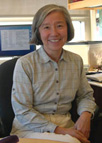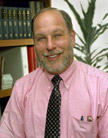
Research Interests:
Mechanism oriented studies of airway disease in human subjects
Summary:
Our research involves studies in people with airway diseases such as asthma, cystic fibrosis, and chronic bronchitis. We are involved in clinical trials of new and established treatments on the one hand and in clinical studies designed to improve understanding of mechanism of disease on the other. For clinical trials, we often collaborate with other CVRI investigators or investigators at other institutions to compare the efficacy of new and established drugs. In conducting clinical trials, we are usually interested in exploring the effects of drugs not just on measures of lung function but also on measures of airway inflammation and remodeling. For this purpose, our laboratory has developed expertise in measuring markers of inflammation and remodeling in samples of sputum or in samples of airway fluids and tissue collected during bronchoscopy. Our lab is particularly experienced in measuring gene expression using gene chips and PCR and in quantifying pathology using a rigorous method of quantitative morphology called stereology.
For our research on mechanisms of airway disease, we are particularly interested in abnormalities of airway epithelial cells (the lining cells of the airway) and in abnormalities in airway mucus. Mucus abnormalities are common in lung diseases, and we are interested in finding out the specific mucus abnormalities that are characteristic of different lung diseases such as asthma and cystic fibrosis. Recently, we have begun to explore the physical properties of airway mucus – thickness, stickiness, and adhesiveness – using an instrument called a rheometer. The rheology of airway mucus has not been investigated in detail, but the research resources of the CVRI are well suited to making progress in this area. For example, in our clinical laboratories in the CVRI, we can collect induced sputum from volunteers in a carefully controlled way, and in our bench laboratories we can make careful rheological measures. These rheologic measures are allowing personnel in our lab to explore new strategies for breaking up the mucus that normally clogs airways.
UCSF Profiles Page











